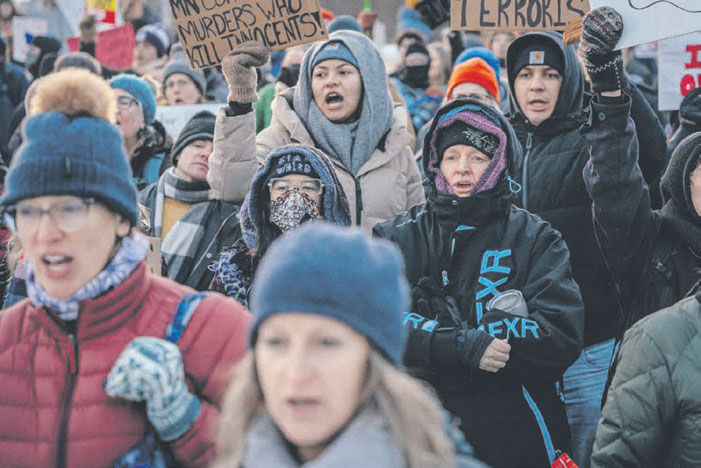Biden hosts a final ‘Quad summit’ at his Delaware home
- The San Juan Daily Star

- Sep 23, 2024
- 4 min read

By Sheryl Gay Stolberg
President Joe Biden hosted the leaders of Australia, India and Japan at his home in Wilmington, Delaware, over the weekend, seeking to use his fourth and final “Quad summit” to cement the alliance between the United States and Indo-Pacific nations and to counter China’s rising influence in the region.
Biden used the summit to expand his “cancer moonshot” initiative and the Quad Fellowship, a scholarship program designed to build ties among the next generation of scientists and technologists. The four leaders also signed a maritime agreement and announced a joint Coast Guard mission.
The Quad alliance has existed for more than a decade, but Biden was the first president to convene a meeting among the leaders of the nations as a foursome. As the four posed for a photo Saturday, Biden was asked whether the alliance would last beyond November. “Way beyond November,” he said.
“Our countries are more strategically aligned than ever before,” Biden said later, adding, “While challenges will come, the world will change, because the Quad is here to stay.” Prime Minister Narendra Modi of India echoed the president, saying, “The Quad is here to stay.”
Biden has often said that “all politics is personal,” and the decision to open his home in Wilmington — the first time he has invited foreign leaders there — reflected his conviction that deep relationships are the best way to forge constructive alliances. With just a few months left in the president’s term, this year’s summit had a personal touch.
On Friday night, when the president had a one-on-one meeting with Prime Minister Anthony Albanese of Australia, he gave Albanese a tour of his home and told those in attendance to get comfortable and take off their jackets. The first lady, Jill Biden, was not present; she stayed in Washington to host the first Back-to-School Night at the White House on Saturday.
“The vibe of it was sort of two guys, one at the other guy’s home, talking in broad strokes about where they see the state of the world, you know, swapping some stories from their respective political careers,” Jake Sullivan, Biden’s national security adviser, told reporters Saturday. It felt, he said, as if “you had someone come over for a cup of coffee.”
Biden had one-on-one meetings with Modi and Prime Minister Fumio Kishida of Japan at his home Saturday. After the session with Modi, the United States and India also announced a new joint clean energy initiative with a focus on partnerships in Africa, where China is making major investments in clean energy.
All four leaders met in the afternoon for a more formal session at Archmere Academy, where the president went to high school, and were to have an “intimate” dinner there in the evening, a White House spokesperson said.
The president’s first Quad summit, during the coronavirus pandemic in March 2021, was virtual. Biden used the meeting to announce a partnership with Japan, India and Australia to finance a dramatic expansion of vaccine manufacturing capacity in India, which would in turn help address an acute shortage of COVID-19 vaccines in Southeast Asia.
The Quad alliance reflects Biden’s belief that, in addition to bilateral meetings and large gatherings like the Group of 20, there is value in what Sullivan called a “latticework approach with multiple institutions, overlapping partnerships, different configurations.”
This year’s summit also addressed health issues. Later on Saturday, the president unveiled a new collaboration — the Quad Cancer Moonshot Initiative — aimed at reducing cervical cancer in the Indo-Pacific region. Some countries in the area, particularly poor and remote island nations, have especially high rates of the disease.
Biden is deeply invested in his moonshot initiative, which seeks to “end cancer as we know it.” He inaugurated it in 2016, when he was vice president, at the request of President Barack Obama, after the death of Biden’s son, Beau, from glioblastoma, an aggressive brain cancer.
“In practice, the Quad Cancer Moonshot means more collaboration between our hospitals, research centers and cancer foundations, more investment in screenings, treatment and research, and more exchanges between our countries,” Biden said.
The initiative is being spearheaded by Caroline Kennedy, the U.S. ambassador to Australia, a country that has already made large strides in reducing the incidence of cervical cancer. The expanded moonshot program will focus on expanding cervical cancer screening; increasing vaccinations against the human papillomavirus, or HPV, a common sexually transmitted infection that is the primary cause of cervical cancer; and treating patients.
It will be supported by Gavi, an international organization that works to expand access to vaccines. In June, Jill Biden announced a five-year commitment of $1.58 billion to Gavi.
India, a major vaccine manufacturer, will donate vaccines, Modi said. Japan will contribute technical expertise. Australia, which is on track to become the first country in the world to eliminate cervical cancer, will expand its existing work in the region.
“One in 4 global cervical cancer cases occur in the Indo-Pacific, and tragically, women in the Pacific die of the disease at up to 13 times the rate of women in Australia,” Albanese said. “These people are not numbers. They are our neighbors, members of our Pacific family, and we’re stepping forward to help.”






Comments